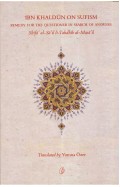- Home
- Books
- Sale
- Online Book Bazar Up To 60%
- SHAH ‘ABD AL-‘AZIZ Puritanism, Sectarian Polemics and Jihad
SHAH ‘ABD AL-‘AZIZ Puritanism, Sectarian Polemics and Jihad
By: Saiyid Athar Abbas Rizvi
-
Rs 1,360.00
- Rs 1,600.00
- 15%
You save Rs 240.00.
Due to constant currency fluctuation, prices are subject to change with or without notice.
SHAH ‘ABD AL-‘AZIZ -Puritanism, Sectarian Polemics and Jihad
The period studied in the present work, from the death of Shah Wali-Allah in 1176/1762 to the death at Balakot in 1246/1831 of Shah `Abd al-`Aziz’s disciple, Sayyid Ahmad Shahid, is marked by intense intellectual activity geared to examining the basis of the contemporary social, religious and economics institutions. The rapid conquests by the English, the dissolution of the Mughal rule and the decline of Muslim influence accelerated Muslim intellectual efforts to establish new political, social, economic and religious relationship vis_d-vis the foreign conquerors. This period also saw Sunni and Shi`i ideological differences developing into full-scale Sunni- Shi`i polemics, each side accusing the other of being heretics and infidels. The battles of Sayyid Ahmad Shahid and Shah Isma`il against the popular religious practices and decadent Sufism culminated with Sayyid Ahmad’s jihad against the Afghan tribes and the Sikhs which created the divide into irreconcilable groups. An exceedingly rich polemical and doctrinal literature, written by the leaders of different movements and their followers, characterises this period. Volumes of their correspondence have been preserved and some contemporary biographical and historical material also survives. Modern authors have written whole books or chapters and articles on the basis of the Sunni material and have commented on the Shils too. The present work gives both Sunni and Shi`i material, presenting the voluminous Shi`i sources for the first time.
SHAH ‘ABD AL-‘AZIZ -Puritanism, Sectarian Polemics and Jihad
The period studied in the present work, from the death of Shah Wali-Allah in 1176/1762 to the death at Balakot in 1246/1831 of Shah `Abd al-`Aziz’s disciple, Sayyid Ahmad Shahid, is marked by intense intellectual activity geared to examining the basis of the contemporary social, religious and economics institutions. The rapid conquests by the English, the dissolution of the Mughal rule and the decline of Muslim influence accelerated Muslim intellectual efforts to establish new political, social, economic and religious relationship vis_d-vis the foreign conquerors. This period also saw Sunni and Shi`i ideological differences developing into full-scale Sunni- Shi`i polemics, each side accusing the other of being heretics and infidels. The battles of Sayyid Ahmad Shahid and Shah Isma`il against the popular religious practices and decadent Sufism culminated with Sayyid Ahmad’s jihad against the Afghan tribes and the Sikhs which created the divide into irreconcilable groups. An exceedingly rich polemical and doctrinal literature, written by the leaders of different movements and their followers, characterises this period. Volumes of their correspondence have been preserved and some contemporary biographical and historical material also survives. Modern authors have written whole books or chapters and articles on the basis of the Sunni material and have commented on the Shils too. The present work gives both Sunni and Shi`i material, presenting the voluminous Shi`i sources for the first time.
Shah WaliAllah and His Times A Studay of Eighteenth Century Islam Politics and Society in India -
By: Saiyid Athar Abbas Rizvi
Rs 1,020.00 Rs 1,200.00 Ex Tax :Rs 1,020.00
A HISTORY OF SUFISM IN INDIA Volume-I & II
By: Saiyid Athar Abbas Rizvi
Rs 1,920.00 Rs 2,400.00 Ex Tax :Rs 1,920.00
SHAH ‘ABD AL-‘AZIZ Puritanism, Sectarian Polemics and Jihad
By: Saiyid Athar Abbas Rizvi
Rs 1,360.00 Rs 1,600.00 Ex Tax :Rs 1,360.00
Zubin Mehta: A Musical Journey (An Authorized Biography)
By: VOID - Bakhtiar K. Dadabhoy
Rs 892.50 Rs 1,050.00 Ex Tax :Rs 892.50
Shah WaliAllah and His Times A Studay of Eighteenth Century Islam Politics and Society in India -
By: Saiyid Athar Abbas Rizvi
Rs 1,020.00 Rs 1,200.00 Ex Tax :Rs 1,020.00
Ibn Khaldun On Sufism: Remedy For The Questioner In Search Of Answers
By: YUMNA OZER
Rs 719.20 Rs 899.00 Ex Tax :Rs 719.20
A Return to the Spirit Questions and Answers -
By: Martin Lings
Rs 592.00 Rs 740.00 Ex Tax :Rs 592.00
Muhammad PBUH is Life Based on the Earliest Sources -
By: Martin Lings
Rs 960.00 Rs 1,200.00 Ex Tax :Rs 960.00
The Holy Qur'an: Translations of Selected Verses
By: Martin Lings
Rs 624.00 Rs 780.00 Ex Tax :Rs 624.00
Built to Last Successful Habits Of Visionary CompaniesAI
By: James C. Collins
Rs 4,045.50 Rs 4,495.00 Ex Tax :Rs 4,045.50
Great Soul Mahatma Gandhi And His Struggle With India
By: Joseph Lelyveld
Rs 731.25 Rs 975.00 Ex Tax :Rs 731.25
The Power Of Positive Thinking For Young People
By: Norman Vincen Peale
Rs 2,245.50 Rs 2,495.00 Ex Tax :Rs 2,245.50
Get Real: How To Tell It Like It Is In A World of Illusions
By: Eliane Glaser
Rs 531.25 Rs 625.00 Ex Tax :Rs 531.25
Shah WaliAllah and His Times A Studay of Eighteenth Century Islam Politics and Society in India -
By: Saiyid Athar Abbas Rizvi
Rs 1,020.00 Rs 1,200.00 Ex Tax :Rs 1,020.00
Ibn Khaldun On Sufism: Remedy For The Questioner In Search Of Answers
By: YUMNA OZER
Rs 719.20 Rs 899.00 Ex Tax :Rs 719.20
A Return to the Spirit Questions and Answers -
By: Martin Lings
Rs 592.00 Rs 740.00 Ex Tax :Rs 592.00
Muhammad PBUH is Life Based on the Earliest Sources -
By: Martin Lings
Rs 960.00 Rs 1,200.00 Ex Tax :Rs 960.00
The Holy Qur'an: Translations of Selected Verses
By: Martin Lings
Rs 624.00 Rs 780.00 Ex Tax :Rs 624.00
CHILDREN'S QURAN STORIES - A CLASSIC TREASURY
By: Saniyasnain Khan
Rs 3,955.50 Rs 4,395.00 Ex Tax :Rs 3,955.50
An Anthology of New Creative Writers from Pakistan
By: Nazish Brohi
Rs 1,700.00 Rs 2,000.00 Ex Tax :Rs 1,700.00
Zubin Mehta: A Musical Journey (An Authorized Biography)
By: VOID - Bakhtiar K. Dadabhoy
Rs 892.50 Rs 1,050.00 Ex Tax :Rs 892.50
Shah WaliAllah and His Times A Studay of Eighteenth Century Islam Politics and Society in India -
By: Saiyid Athar Abbas Rizvi
Rs 1,020.00 Rs 1,200.00 Ex Tax :Rs 1,020.00
A HISTORY OF SUFISM IN INDIA Volume-I & II
By: Saiyid Athar Abbas Rizvi
Rs 1,920.00 Rs 2,400.00 Ex Tax :Rs 1,920.00
SHAH ‘ABD AL-‘AZIZ Puritanism, Sectarian Polemics and Jihad
By: Saiyid Athar Abbas Rizvi
Rs 1,360.00 Rs 1,600.00 Ex Tax :Rs 1,360.00
Shah WaliAllah and His Times A Studay of Eighteenth Century Islam Politics and Society in India -
By: Saiyid Athar Abbas Rizvi
Rs 1,020.00 Rs 1,200.00 Ex Tax :Rs 1,020.00
Ibn Khaldun On Sufism: Remedy For The Questioner In Search Of Answers
By: YUMNA OZER
Rs 719.20 Rs 899.00 Ex Tax :Rs 719.20
A Return to the Spirit Questions and Answers -
By: Martin Lings
Rs 592.00 Rs 740.00 Ex Tax :Rs 592.00
Muhammad PBUH is Life Based on the Earliest Sources -
By: Martin Lings
Rs 960.00 Rs 1,200.00 Ex Tax :Rs 960.00
The Holy Qur'an: Translations of Selected Verses
By: Martin Lings
Rs 624.00 Rs 780.00 Ex Tax :Rs 624.00
















-120x187.jpg?q6)




















